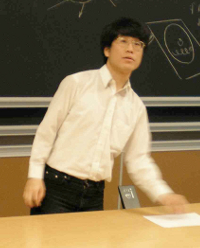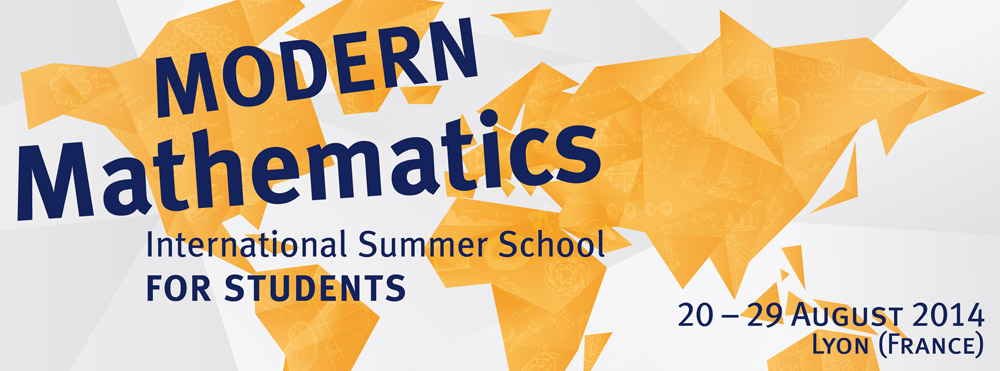Tadashi Tokieda
|
Tadashi Tokieda was born in Japan and educated in France, he obtained his Ph. D. at Princeton University; he works at the University of Cambridge. He is interested in physics, particularly related to toys. Scholar and polyglot (in addition to Japanese, French, and English, he knows Greek, Latin, classical Chinese, Finnish, Spanish, and Russian), Tadashi is specialized in the popularization of mathematics and physics and is an outstanding communicator. |
 |
"Invitation to simple modeling of complex phenomena": Drop a stone into water. It makes a sound, "glop" for a big stone, "splitch" for a small stone. Can you predict the pitch of the sound from the size of the stone? The usual teaching of mathematical theories is like a pyramid. Young people tend to become passive (if passionate) admirers of a structure built by old people, and problems they are taught to solve make them walk straight up to the peak. But what if we want to explore a natural mountain range, whose peaks are invisible among clouds, whose trails among trees are unknown? The problem of the sound of a stone falling into water is natural, so natural that every child knows the phenomenon and can wonder about it. The mathematics involved is extremely hard, so hard that it is not taught at any mathematics department in the world. This course tries to teach how to make _some_ progress on _any_ natural problem, when we know _nothing_. We will use no theory more sophisticated than calculus*, which to a passive admirer may seem little, but the _way_ we use it is very robust and powerful and a bit magical, and allows us to solve for example the problem above. In short, we shall learn the first steps in _applied mathematics_.
*Experience up to having seen simple differential equations (e.g. y′′ +ay′ +by = 0) solved, and common sense in mechanics, are desirable prerequisites.

